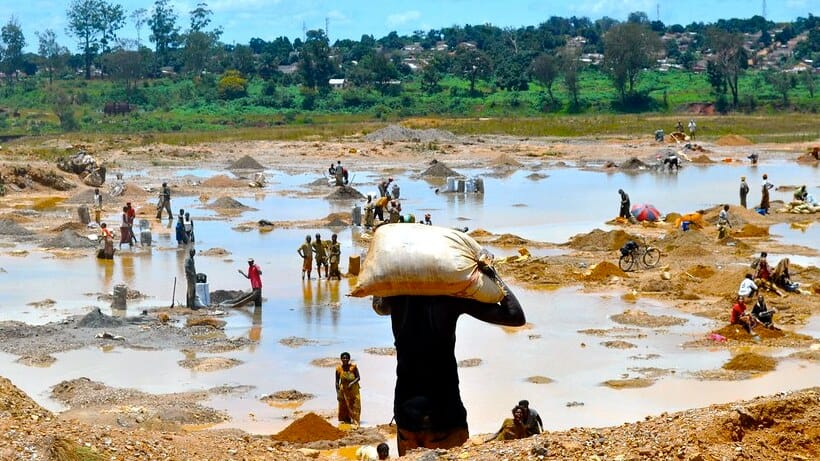Jinchuan’s Ruashi Mining hit with DRC verdict: CEO Wang Tao gets 18 months in jail
Ruashi Mining, a key African subsidiary of China’s Jinchuan Group, has been fined USD 10 million and its CEO jailed in the DRC. A landmark ruling with major implications for Chinese corporate governance abroad.

On February 21, 2025, the Peace Court of Kinshasa/Gombe sentenced Wang Tao, CEO of Ruashi Mining SAS, to 18 months in prison and a fine of 2 million Congolese francs. The company itself was held jointly liable and ordered to pay USD 10 million in damages to French-Congolese entrepreneur Pascal Beveraggi.
This ruling directly implicates a subsidiary of China's Jinchuan Group, one of the world’s largest producers of nickel, copper, and cobalt, raising important questions about governance risks in overseas operations.
Legal and Financial Consequences Beyond the Local Level
The case stems from the enforcement of a ruling by the Kinshasa Commercial Court, which confirmed a USD 7.5 million debt owed by Ruashi Mining to two companies led by Beveraggi: NB Mining Africa SA and Octavia Limited.
Despite court-approved asset seizures, Wang Tao reportedly sought to obstruct enforcement by filing contradictory legal motions and diverting seized funds — including USD 1 million from TMB (a commercial bank) and approximately USD 460,000 from Ecobank.
He is also accused of re-sealing previously seized assets and submitting falsified documents to the judiciary.
Ruashi Mining: A Strategic Piece in Jinchuan’s African Portfolio
Ruashi Mining operates a major copper and cobalt mine near Lubumbashi, in southeastern DRC. The company is 75% owned by Metorex, a South African firm acquired by Jinchuan in 2012 for over USD 1.3 billion via a public takeover offer.
Metorex now operates under Jinchuan Group International Resources, the Hong Kong–listed arm of the Chinese group. The remaining 25% of Ruashi is held by Gécamines, the state-owned Congolese mining company.
This makes Ruashi Mining a strategic asset in China's broader resource extraction efforts across Africa.
Legal Accountability: A Growing Risk for Chinese Corporates Abroad?
The criminal conviction of a local executive representing a Chinese-controlled firm is unusual in Central Africa, where corporate disputes are often settled behind closed doors. The court’s decision to hold Ruashi Mining itself liable — not just its CEO — signals a shift in how African judicial systems may enforce corporate accountability.
Amid growing local demands for sovereignty and economic fairness, this case could represent a turning point in the treatment of foreign multinationals operating in Africa’s high-value sectors.
Compliance and Governance: Strategic Considerations for Asian Investors
The Beveraggi vs. Ruashi Mining verdict may serve as a real-world stress test for China’s economic soft power in Africa, as well as for its corporate governance frameworks abroad.
With Jinchuan and other Asian firms heavily invested in Africa’s natural resources sector, this case highlights the urgent need for enhanced legal compliance, stronger local governance mechanisms, and risk mitigation strategies within subsidiaries operating in volatile regulatory environments.
